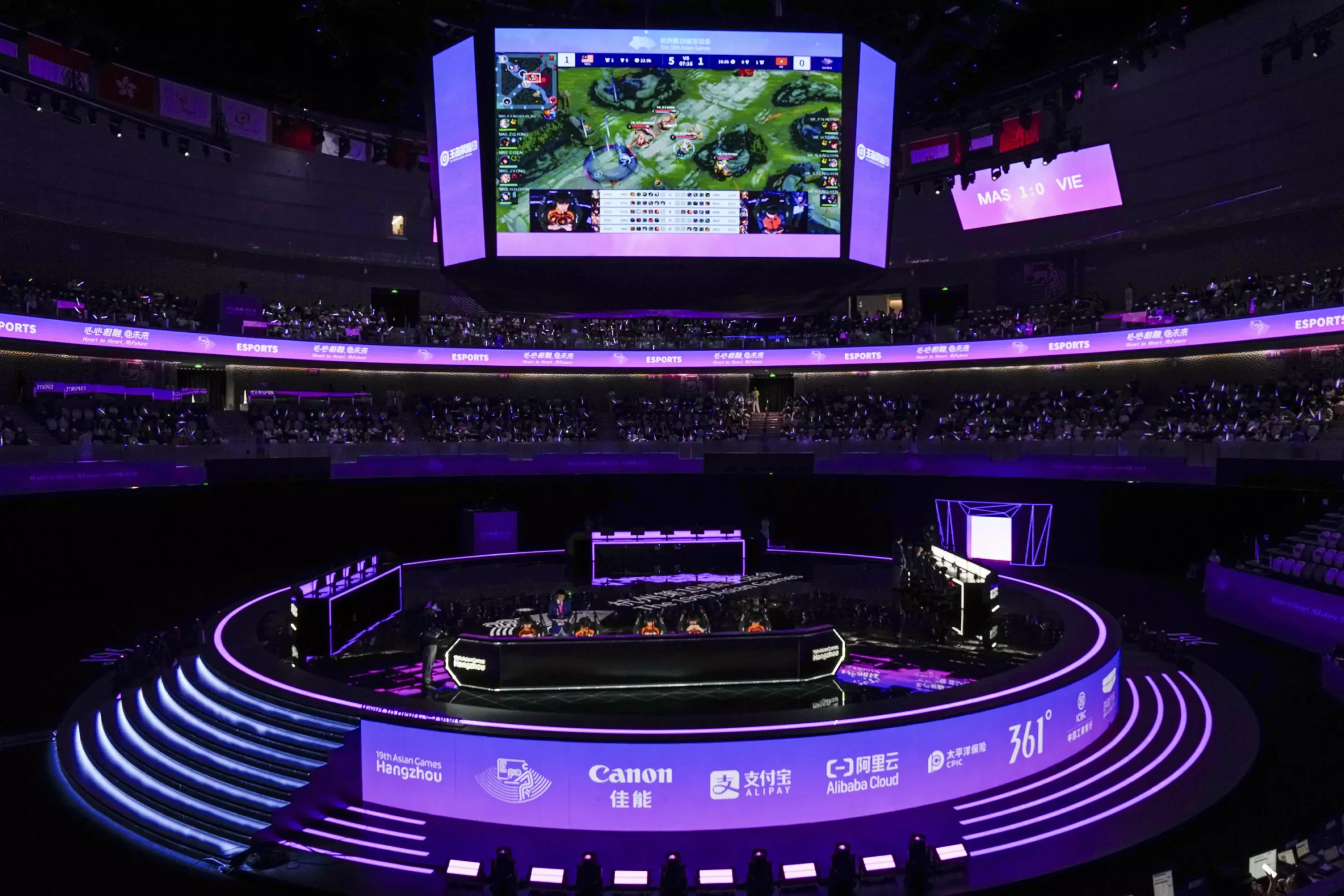South Korea’s League of Legends team had an exceptional start to their esports journey at the Asian Games on Monday. Lee Sang-hyeok, famously known as “Faker,” displayed a remarkable performance, leading his team to victory against Hong Kong and Kazakhstan. This year, esports has made its debut as a competitive sport at the Asian Games, captivating audiences and establishing itself as a prominent presence in the global games market.
With Lee Sang-hyeok, or Faker, at the helm, South Korea’s League of Legends team demonstrated an impressive level of skill in their matches at the Asian Games. The day began with a victory against Hong Kong, followed by a dominant performance against Kazakhstan, resulting in a swift victory in just 17 minutes. Faker expressed his satisfaction with their performance, stating, “Today’s games went really well, just as we had anticipated.”
As the esports industry continues to thrive, both in terms of the number of players and revenue generated, its inclusion in the Asian Games as a competitive sport signifies its growing popularity. League of Legends, one of the most popular games worldwide, features two teams of five powerful champions battling to destroy each other’s base. This groundbreaking inclusion in the Asian Games has not only amplified national pride for the players but has also offered an exemption from mandatory military service for male gold medal winners.
Lee Sang-hyeok had previously encountered hand and arm pain that had sidelined him earlier in the year. However, he reported that he has fully recovered and no longer requires any treatment. He confidently stated that the injuries would not significantly impact his performance in the games. Lee’s dedication and resilience in overcoming physical obstacles reflect his commitment to his craft and his team.
Following their victories, South Korea advances to the quarterfinals, where they will face Saudi Arabia on Wednesday. Their continued journey in the tournament places them as one of the favorites alongside China. The draw between South Korea and Hong Kong was met with disappointment by Chau Shu Tak, who exclaimed that facing such a formidable opponent right at the beginning felt daunting. Chau, known as YSKM (You Should Know Me), acknowledged the skill of the South Korean players, emphasizing their dominance in the world of League of Legends.
Faker, acclaimed as the Greatest Of All Time (GOAT) in the League of Legends community, enjoys celebrity status in China, a country with a fervent passion for gaming. Upon his arrival at Hangzhou airport, he was greeted by a fanbase of over 100 enthusiasts. Unfortunately, fans could not witness his gameplay in person during the opening day of the League of Legends competition as the main arena housed the semifinals of another esports game, Arena of Valor. The Malaysian team emerged victorious against Vietnam, advancing to compete against China for the gold medal, while Vietnam and Thailand will contend for the bronze.
The growing appeal of esports has prompted its inclusion in the Asian Games, where it debuted as a demonstration sport during the previous edition in Jakarta, Indonesia. This year, spectators could only secure tickets through a lottery system to witness this highly sought-after event. The Asian Games’ roster also features other “mind games” like bridge and chess, aiming to engage and attract younger audiences. Recognizing the potential and relevance of video gaming and virtual sports for younger demographics, the International Olympic Committee recently established an esports commission.
The Asian Games esports competition encompasses five PC games and two mobile games, representing a variety of genres. Apart from League of Legends and Arena of Valor, the lineup includes Peace Elite Asian Games Version (also known as PUBG Mobile), Dota 2, Dream Three Kingdoms 2, Street Fighter V: Champion Edition, and EA Sports FC (also known as FIFA Online 4). Each game will award gold medals based on competition forms that vary according to the genre.
With projections indicating an increasing number of players worldwide and steady revenue growth, the future of esports appears bright. In its latest analysis, research company Newzoo predicts that the global games market will reach 3.38 billion players by 2023, reflecting a 6.3% year-on-year increase. Additionally, the industry’s annual revenues are expected to grow by 2.6%, surpassing $187.7 billion.
South Korea’s dominant performance in the League of Legends competition at the Asian Games, spearheaded by the exceptional skills of Faker, showcases the country’s stronghold in the esports world. As esports gains recognition and appreciation on a global scale, its inclusion in prestigious events like the Asian Games emphasizes its rising status as a competitive sport. With an expanding lineup and a projected prosperous future, esports continues to captivate audiences and pave the way for exciting possibilities in the world of gaming.


Leave a Reply